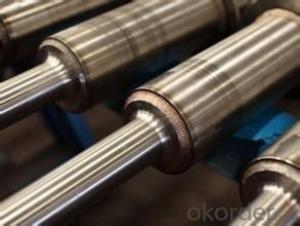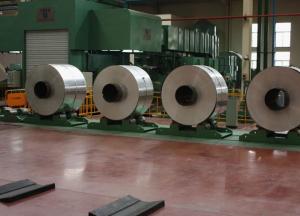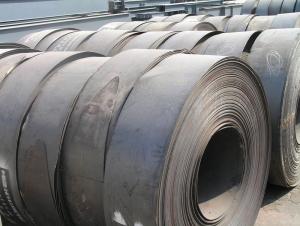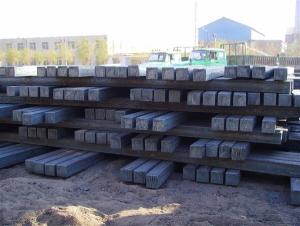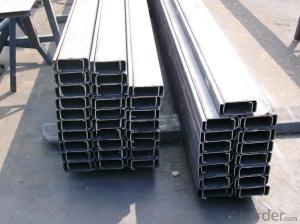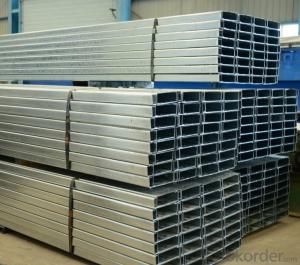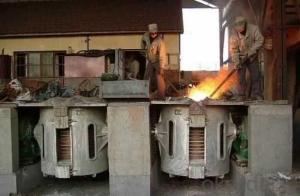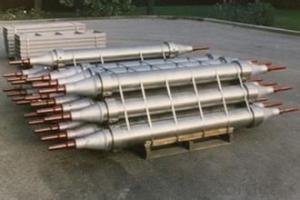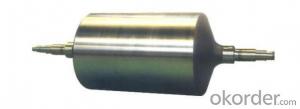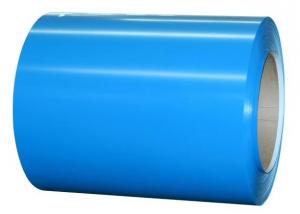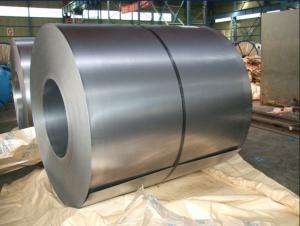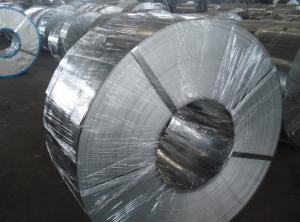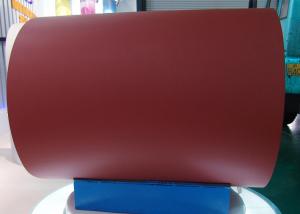Work Rolls Are produced in re-melting and casting furnaces
- Loading Port:
- Tianjin
- Payment Terms:
- TT OR LC
- Min Order Qty:
- 1000 PCS
- Supply Capability:
- 10000 PCS/month
OKorder Service Pledge
Quality Product, Order Online Tracking, Timely Delivery
OKorder Financial Service
Credit Rating, Credit Services, Credit Purchasing
You Might Also Like
Quick Details
| Place of Origin: | Brand Name: | Model Number: | LMM-080 | ||
| Application: | steel | Material: | Steel | Dimensions: | as per customers' request |
Packaging & Delivery
| Packaging Detail: | standard seaworthy package |
| Delivery Detail: | 30days |
Specifications
large rolls
mainly composed of pearlite (or temper sorbite) in the, microstructure,
We adopt the normal casting way, slot-based casting and large, medium and small horizontal centrifugal casting method to produce rolls, where the large sized horizontal centrifugal machine ia capable of producing the rolls of the max specs dia 1400*4600*9000.
LARGE ROLLS
It mainly used for rods and bars, wire rod, profile material etc
| Material Code | Barrel hardness HSD | Roll neck strenght MPa | Tensile Strength MPa |
| SG II | 50-70 | 35-55 | >320 |
| as60 I | 55-70 | 35-55 | >320 |
- Q: How is steel pipe threaded for plumbing applications?
- Steel pipe is threaded for plumbing applications using a process called threading, which involves cutting helical grooves or ridges on the external surface of the pipe. This is typically achieved using a threading machine or a die set. The threaded ends of the pipe can then be connected to fittings, allowing for a secure and leak-resistant plumbing system.
- Q: How is steel tubing used in the manufacturing of automobile exhaust systems?
- Steel tubing is used in the manufacturing of automobile exhaust systems because it offers strength, durability, and resistance to high temperatures and corrosion. The tubing is shaped and welded to form the necessary paths for exhaust gases to flow from the engine to the tailpipe, ensuring efficient and safe removal of harmful emissions.
- Q: What are the different types of steel products used in the manufacturing of outdoor furniture?
- The different types of steel products commonly used in the manufacturing of outdoor furniture include steel tubing, steel rods, steel sheets, and steel plates. These products are used to create the frames, support structures, and surfaces of outdoor furniture pieces such as chairs, tables, and benches.
- Q: How do steel products contribute to the electrical and power transmission sector?
- Steel products play a crucial role in the electrical and power transmission sector by providing the necessary infrastructure to support and transmit electricity efficiently. Steel is used in the construction of transmission towers, poles, and substations, which form the backbone of power transmission networks. These products provide the necessary strength and durability to withstand extreme weather conditions and support high-voltage power lines. Additionally, steel is also used in the manufacturing of electrical transformers, generators, and turbines, which are essential components of power generation and distribution systems. Overall, steel products contribute significantly to the reliability and effectiveness of the electrical and power transmission sector.
- Q: How is steel used in the production of pipelines?
- Steel is commonly used in the production of pipelines due to its strength, durability, and resistance to corrosion. It is used to construct the main body of the pipeline, providing a sturdy structure to transport various types of fluids over long distances. Additionally, steel pipes can be welded together, allowing for easy installation and maintenance.
- Q: How is steel used in the construction of industrial buildings and warehouses?
- Steel is commonly used in the construction of industrial buildings and warehouses due to its strength, durability, and cost-effectiveness. It is used for structural frames, beams, columns, and trusses, providing a sturdy framework that can support heavy loads and withstand harsh environmental conditions. Additionally, steel allows for larger open floor plans and flexible layouts, making it easier to customize the interior space to meet specific requirements.
- Q: What are the different types of steel bars and rods available?
- There are several different types of steel bars and rods available, including carbon steel bars, alloy steel bars, stainless steel bars, and tool steel bars. Each type has its own unique properties and is used in various applications depending on their strength, corrosion resistance, and machinability requirements.
- Q: What are the different types of steel coils and their applications?
- There are various types of steel coils available, including hot-rolled, cold-rolled, galvanized, and stainless steel coils. Hot-rolled coils are commonly used in construction, automotive, and machinery industries due to their strength and flexibility. Cold-rolled coils are used for applications requiring precise dimensions and a smooth surface finish, such as in the manufacturing of appliances and furniture. Galvanized coils are coated with a layer of zinc, making them corrosion-resistant and suitable for outdoor applications. Stainless steel coils are highly resistant to corrosion and heat, making them ideal for use in the food processing, medical, and chemical industries.
- Q: What are the common uses of steel in the mining industry?
- Steel is commonly used in the mining industry for various purposes such as construction of mining equipment, infrastructure, and vehicles. It is also used in the production of drill bits, conveyor belts, and crushers. Additionally, steel is essential for creating support structures, including mine shafts and tunnels, due to its strength and durability.
- Q: What are the different types of steel bars and their applications?
- There are several types of steel bars, each with their own distinct characteristics and applications. Some common types include mild steel bars, deformed steel bars, stainless steel bars, and alloy steel bars. Mild steel bars are widely used in construction due to their affordability and versatility. They are commonly used for general reinforcement purposes in buildings, bridges, and other structures. Deformed steel bars, on the other hand, have ridges or deformations on their surface which enhance their bonding with concrete. These bars are extensively used in reinforced concrete structures such as columns, beams, and slabs. Stainless steel bars are highly resistant to corrosion and are used in environments where corrosion is a concern, such as in marine applications, food processing industries, and chemical plants. Alloy steel bars are made by adding different alloying elements to enhance specific properties like strength, hardness, and resistance to wear and tear. They are commonly used in the manufacturing of automobile parts, machinery, and tools. In summary, the different types of steel bars cater to various applications based on their specific properties, making them suitable for a wide range of industries and construction projects.
Send your message to us
Work Rolls Are produced in re-melting and casting furnaces
- Loading Port:
- Tianjin
- Payment Terms:
- TT OR LC
- Min Order Qty:
- 1000 PCS
- Supply Capability:
- 10000 PCS/month
OKorder Service Pledge
Quality Product, Order Online Tracking, Timely Delivery
OKorder Financial Service
Credit Rating, Credit Services, Credit Purchasing
Similar products
Hot products
Hot Searches
Related keywords
